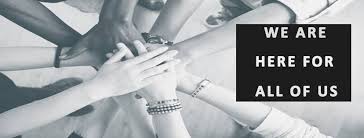one of these challenges
is
practical simple common sense.

by this i mean,
for example,
which of the native Negroland Africa languages
does one choose ?

if one looks at Negroland Africa
i.e
if one looks at
● Western Africa,
● Eastern Africa,
● Central Africa,
● Southern Africa
which is essentially
the area/part of Africa below the Sahara Desert
i.e
sub-Saharan Africa

and
at the languages spoken there
as languages of
government,
administration,
commerce,
trade,
finance,
business,
etc,
one finds that
the major languages spoken
include :
● english,
● french,
● portuguese and
● arabic.
french, english and portuguese
are the native languages of
the European peoples of France, England and Portugal
all in Western Europe, Europe.
arabic is the native language of the Arab peoples of
Northern Africa, Africa and the Middle East.
french is probably,
geographically,
the language spoken over the widest land mass area of Africa
going by the number of countries in Africa that were formerly ruled by France
i.e
formerly colonies of France
and upon which the French people imposed their own native french language.
it is followed in this regards by english
and then perhaps by portuguese.
arabic is spoken over a wide range area because
it is the language in which Islam i.e the Islamic religion is
propagated, taught and practiced.
so
every Muslim
i.e
every follower/adherent of the Islamic religion
reads,understands and speaks? it
as the Quoran ( i.e the Holy Book of the Islamic faith ) is written in arabic
and
one needs to be able to read and understand Arabic in order to read it.
english is more or less the world’s language for
science,
technology and
administration
and many people from countries other than Great Britain / United Kingdom
e.g
Germany,
Spain,
Italy,
Switzerland,
etc
( all of which are also in Europe )
speak and write english
in addition to
their own native languages
e.g
German,
Spanish,
Italian,
etc
thus,
it is probably a contest
between
english, french and arabic
as to which of them is
spoken over the greatest land mass area of Negroland Africa.
among the native Negroland Africa languages themselves,
hausa and swahili are probably the languages spoken over the widest land mass area.
hausa is spoken across a number of countries in Western Africa.
swahili is spoken across a number of countries in Eastern? Africa and Central? Africa.
taking all of this into cognizance,
the vital question
remains :
█ if one were to adopt a language as a lingua franca for Africa,
which language would one choose
and
which languages would one drop ?

and in our own context here
█ if one were to adopt a native Negroland Africa language
as a lingua franca for all Negroland Africa,
which language would one choose
and
which languages would one drop ?

and then
there is also
the question of
practicality and implementation :
█ how does one get
the extremely high number of different tribes / ethnicities / ethnic groups across Negroland Africa
( all of whom more or less have their own individual distinct Negroland Africa language )
to accept and use the language of a tribe
different from theirs
i.e other than theirs
as a language that
they and everyone else will henceforth be speaking ?

and then
there is the implied question :
if one says :
█ we don’t need the Negroland Africa people to accept the language
we want them to speak.
● Belgium didn’t need the acceptance of the Congo people
to make them speak french.
it imposed the language on the Congo people.
● the Dutch / Holland / Netherlands people who ruled the Republic of South Africa
didn’t need the acceptance of the people of the Republic of South Africa
to make them speak afrikaans and english.
they and the English/UK folks who dominated/ruled the Republic of South Africa
at certain periods of world history
imposed these languages on the Republic of South Africa people.
● so,
we don’t need the Negroland Africa people to accept the language
we want them to speak.
we are just going to choose one language
and
force it/impose it upon them.
how does one achieve it ?
without the brutal life or death option methodology
rumoured
to have been used by the Europeans and Arabs
when imposing the use of their own native languages
( french, english, arabic, portuguese, etc )
on the native Negroland Africa tribes ?


NOTICE OF WORK IN PROGRESS :
please note that while this piece has been posted,
it is in fundamental essence
and
to all intents and purposes
a WORK IN PROGRESS
and shall thus be updated and edited
from time to time accordingly
until such a time that the work stands or can stand for itself
DISCLAIMER and NOTICE OF DISCLAIMER
VIRTUALLY ALL THE PHOTOS USED IN THIS BLOG WERE SOURCED FROM AND HAVE BEEN SOURCED FROM THE INTERNET.
WE DO NOT OWN OR HOLD THE COPYRIGHT(S) TO THE PHOTOS AND WE DO NOT CLAIM THAT WE OWN OR HOLD THE COPYRIGHTS TO THE PHOTOS.
ANY INFRINGEMENT ON COPYRIGHT IS UNINTENDED AND UNINTENTIONAL.
IMMEDIATELY WE BECOME AWARE OF ANY INFRINGEMENT WE WILL DELETE SUCH PHOTOS TOTALLY, COMPLETELY AND PERMANENTLY FROM THE BLOG.
one of these challenges is practical simple common sense.
by this i mean, for example, which of the native Negroland Africa languages does one choose ?
if one looks at Negroland Africa i.e if one looks at
● Western Africa,
● Eastern Africa,
● Central Africa,
● Southern Africa
which is essentially the area/part of Africa below the Sahara Desert i.e sub-Saharan Africa
and at the languages spoken there as languages of government, administration, commerce, trade, finance, business, etc,
one finds that the major languages spoken include :
● english,
● french,
● portuguese and
●arabic.
french, english and portuguese are the native languages of the European peoples of France, England and Portugal all in Western Europe, Europe.
arabic is the native language of the Arab peoples of Northern Africa, Africa and the Middle East.
french is probably, geographically, the language spoken over the widest land mass area of Africa going by the number of countries in Africa that were formerly ruled by France i.e formerly colonies of France and upon which the French people imposed their own native french language.
it is followed in this regards by english and then perhaps by portuguese.
arabic is spoken over a wide range area because it is the language in which Islam i.e the Islamic religion is propagated, taught and practiced.
so every Muslim i.e every follower/adherent of the Islamic religion reads,understands and speaks? it as the Quoran ( i.e the Holy Book of the Islamic faith ) is written in arabic and one needs to be able to read and understand Arabic in order to read it.
english is more or less the world’s language for science, technology and administration and many people from countries other than Great Britain / United Kingdom e.g Germany, Spain, Italy, Switzerland, etc ( all of which are also in Europe ) speak and write english in addition to their own native languages e.g German, Spanish, Italian, etc
thus, it is probably a contest between english, french and arabic as to which of them is spoken over the greatest land mass area of Negroland Africa.
among the native Negroland Africa languages themselves, hausa and swahili are probably the languages spoken over the widest land mass area.
hausa is spoken across a number of countries in Western Africa.
swahili is spoken across a number of countries in Eastern? Africa and Central? Africa.
taking all of this into cognizance, the vital question remains :
█ if one were to adopt a language as a lingua franca for Africa, which language would one choose and which languages would one drop ?
and in our own context here
█ if one were to adopt a native Negroland Africa language as a lingua franca for all Negroland Africa, which language would one choose and which languages would one drop ?
and then there is also the question of practicality and implementation :
█ how does one get the extremely high number of different tribes / ethnicities / ethnic groups across Negroland Africa ( all of whom more or less have their own individual distinct Negroland Africa language ) to accept and use the language of a tribe different from theirs i.e other than theirs as a language that they and everyone else will henceforth be speaking ?
and then there is the implied question :
if one says :
█ we don’t need the Negroland Africa people to accept the language we want them to speak.
● Belgium didn’t need the acceptance of the Congo people to make them speak french.
it imposed the language on the Congo people.
● the Dutch / Holland / Netherlands people who ruled the Republic of South Africa didn’t need the acceptance of the people of the Republic of South Africa to make them speak afrikaans and english.
they and the English/UK folks who dominated/ruled the Republic of South Africa at certain periods of world history imposed these languages on the Republic of South Africa people.
● so, we don’t need the Negroland Africa people to accept the language we want them to speak.
we are just going to choose one language and force it/impose it upon them.
how does one achieve it ? without the brutal life or death option methodology rumoured to have been used by the Europeans and Arabs when imposing the use of their own native languages ( french, english, arabic, portuguese, etc ) on the native Negroland Africa tribes ?



buy cialis online no prescription usa – site buy cialis 20mg online uk
Some crypto exchanges also let you use your credit card to buy cryptocurrency. But this is risky. The bank will treat the transaction as a cash advance or as if you borrowed cash from your credit card via an ATM. The average cash advance interest rate is 20.79%. So you can end up paying a lot more for your dogecoins than what they’re worth. And if Dogecoin’s value goes down, you’re left with high-interest credit card debt and no crypto profits to pay it off with. I made a 500 per cent return on dogecoin. For those who are not familiar with dogecoin and would like to learn more, Cuban advised, “we strongly encourage you to talk to your teenagers who are on Tik Tok and ask them about it. They will be able to explain it all to you.” Dogecoin has been pumped numerous times on several social media platforms, including Tik Tok. Spacex and Tesla CEO Elon Musk has also had his fair share of pumping the coin’s price with various tweets. https://starcom-germany.de/community/profile/wilfordshapiro7 Payouts will first be supported in the USDC stablecoin via the Polygon PoS (MATIC) network, according to the company. Creator earnings will be paid into Polygon-compatible wallets such as Metamask, Coinbase Wallet or Rainbow Wallet, and creators can hold their earnings as USDC or convert them into a local currency. We believe stablecoins like USDC will continue to disrupt the financial systems and could eventually change how the world spends its money. Anyone can start owning tokens with a bit of cash or crypto and almost no effort. If you don’t have either and wish to start from scratch, check out how to earn cryptocurrencies here. USD coin (USDC) is an Ethereum-based stablecoin – a type of digital asset whose value is pegged 1:1 with the U.S. dollar. That means holders can redeem 1 USD coin for $1 at any time. Every USDC is backed by one dollar or an asset with an equivalent value, held in accounts with U.S. regulated financial institutions.